Ecuador’s Indigenous Leaders Willing to Talk After Fuel-Price Protests
The demonstrations have paralyzed Ecuador's economy for nearly a week.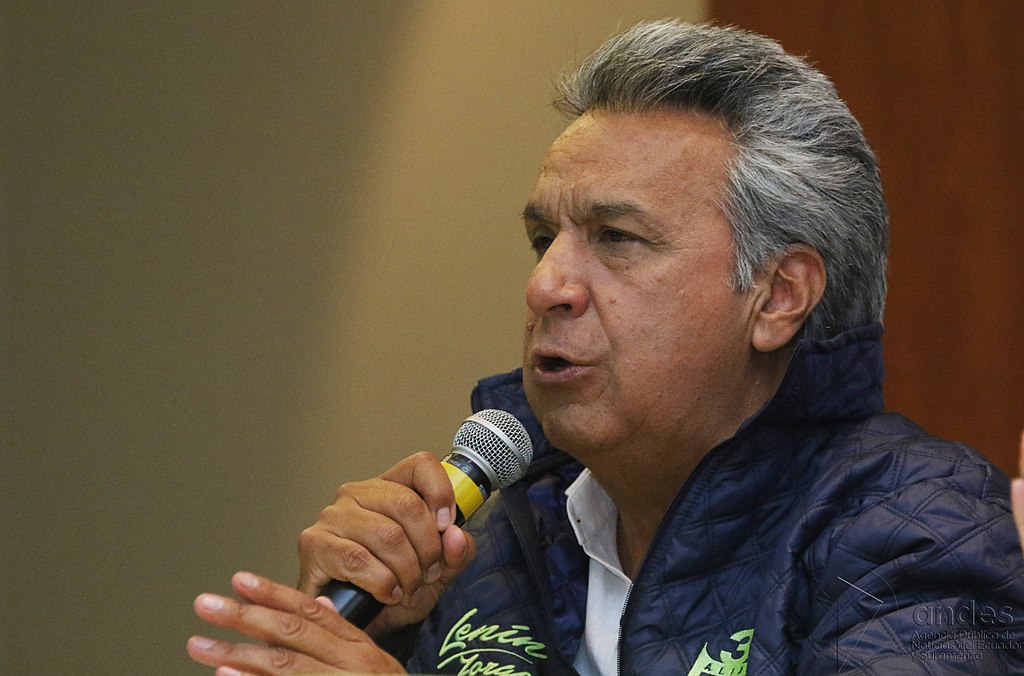 Lenin Moreno, president of Ecuador. (Agencia de Noticias ANDES / Wikimedia)
Lenin Moreno, president of Ecuador. (Agencia de Noticias ANDES / Wikimedia)
QUITO, Ecuador — Indigenous leaders of fuel-price protests that have paralyzed Ecuador’s economy for nearly a week said Saturday they are willing to negotiate with President Lenín Moreno, signaling a possible exit from the crisis even as violence prompted the president to impose a curfew in the capital and surrounding areas.
Moreno said the military-enforced curfew would begin at 3 p.m. local time in response to breakouts of violence in areas previously untouched by the protests. Around 1 p.m., masked protesters broke into the national auditor’s office and set it ablaze, sending black smoke billowing across the central Quito park and cultural complex that have been the epicenter of the protests.
Across the capital, groups of hooded young men used rocks and burning tires to block streets in residential neighborhoods. Some drivers, pedestrians and owners of small businesses reported being threatened and robbed. Roads leading to the international airport were also blocked, according to Quito city officials.
The indigenous leaders have distanced themselves from the violent gangs, calling them instigators unconnected to the native groups’ cause.
Quito Mayor Jorge Yunda said Moreno was willing to revise the austerity package that set off protests and planned to meet Saturday with leaders of the demonstrations. Yunda said he and other mayors were mediating the standoff that has halted Ecuador’s oil production, blocked highways and caused hundreds of millions of dollars in loss to industries ranging from flower-growing to dairy farming.
Even as the two sides made progress toward compromise, violence was spreading.
Interior Minister María Paula Romo said 30 people had been arrested in the attack on the auditor’s office and firefighters said they were able to extinguish the blaze after soldiers and police retook control of the building, which houses evidence in corruption investigations.
Offering some hope of resolution, the Confederation of Indigenous Nations of Ecuador said on its Twitter account that after internal discussion “we have decided to participate in direct dialogue” with Moreno.
Minutes later, Leonidas Iza, a Quechua leader from mountainous Cotopaxi province, told Ecuavisa television that “we have asked for minimal conditions for dialogue,” including what he called an end to government violence against protesters.
Previously, indigenous protesters had refused to negotiate until Moreno restored fuel subsidies whose cancelations prompted days of protests around Ecuador.
Luis Chilán, a 47-year-old former from the Andes, said he had been protesting in central Quito for days.
“We’ll be here until there’s a deal with Moreno,” he said. The rise in gas prices, he said, “affects the poorest people in the country. We aren’t going to step back.”
An indigenous leader and four other people have died in clashes with authorities, according to the public defender’s office. The president’s office has reported two deaths. Hundreds of protesters have been injured and hundreds more briefly detained.
Ecuador, a former OPEC member, was left deeply in debt by a decade of high-spending governance and the oil price drop. Faced with a $64 billion debt and a $10 billion annual deficit, Moreno is raising taxes, liberalizing labor laws and cutting public spending in order to win more than $4 billion in emergency financing from the International Monetary Fund.
As part of that plan, Moreno eliminated a subsidy on the price of fuel on Oct. 2, driving the most popular variety of gasoline from $1.85 to $2.39 a gallon and diesel from $1.03 to $2.30. Panic and speculation sent prices soaring, with costs of some products — papayas, rural bus fares — doubling or more.
Ecuador’s indigenous people, wracked by poverty and underserved by government programs, were infuriated. Over the last week, thousands of Shuar, Saraguro, Quechua and other indigenous people streamed into Quito from deep in the Amazon rainforest and high in the towns and villages of the Ecuadorian Andes. They have set up camp in the Casa de la Cultura, the neighboring park known as El Arbolito and three universities.
At least once a day, young men with sticks and rocks have surged toward the legislature and try to take it over, as they’ve done at least once this week, before being driven out with tear gas.
The protests have halted activity in much of the southern end of the capital and prompted Moreno to temporarily move the seat of government to the Pacific port city of Guayaquil. Indigenous protesters also launched attacks on Amazon oil wells that have paralyzed production, the country’s main export, by cutting off generators and forcing essential staff to leave.
Despite the dire situation, Moreno has said he cannot restore the fuel subsidies. The country is broke and backing down to protesters would be a defeat for the president’s effort to undo the policies of his predecessor and former mentor, Rafael Correa.
Moreno has received statements of support from the U.S., the Organization of American States and a group of Latin American countries that emphasize he took office as Ecuador’s constitutionally elected president in 2017.
_______
Correspondent Raisa Avila contributed to this report.
Your support is crucial...As we navigate an uncertain 2025, with a new administration questioning press freedoms, the risks are clear: our ability to report freely is under threat.
Your tax-deductible donation enables us to dig deeper, delivering fearless investigative reporting and analysis that exposes the reality beneath the headlines — without compromise.
Now is the time to take action. Stand with our courageous journalists. Donate today to protect a free press, uphold democracy and uncover the stories that need to be told.


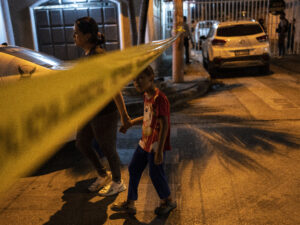
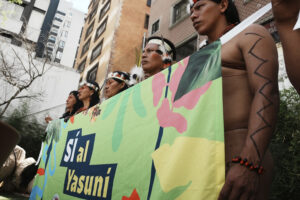
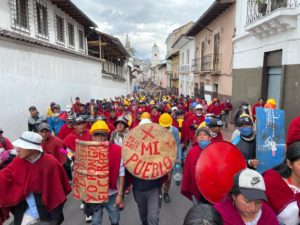
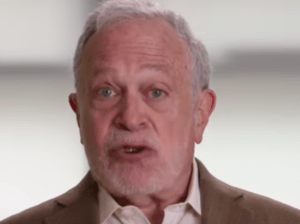
You need to be a supporter to comment.
There are currently no responses to this article.
Be the first to respond.